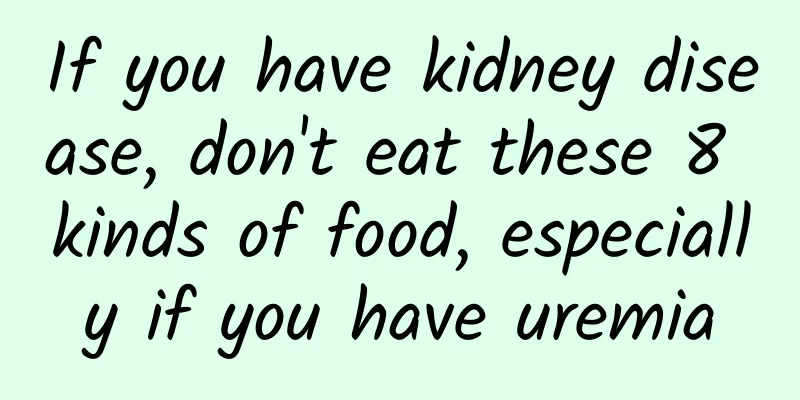If you have kidney disease, don't eat these 8 kinds of food, especially if you have uremia

|
Diet control is very important for patients with kidney disease, especially those with uremia. The following 8 kinds of food should be paid special attention and should be avoided as much as possible. 1. Starfruit It contains a neurotoxin that may cause poisoning reactions in patients with renal insufficiency, especially those with uremia, leading to serious consequences such as nausea, vomiting, limb numbness and even coma. 2. Banana Bananas are rich in potassium. The kidneys of patients with kidney disease have reduced potassium excretion ability. Excessive intake of bananas can easily lead to hyperkalemia, which can cause dangerous conditions such as arrhythmia and cardiac arrest. 3. Oranges It also contains high potassium, and consumption by patients with uremia may increase the accumulation of potassium in the body, causing adverse effects on the heart and neuromuscular system. 4. Watermelon The water content is extremely high. Eating it in large quantities will increase the burden on the kidneys, causing worsening edema and may also induce complications such as heart failure. Patients with kidney disease, especially those with uremia, should strictly control their intake. 5. Nuts Foods such as walnuts, almonds, and cashews are high in phosphorus and fat, which will increase the metabolic burden on the kidneys and easily lead to hyperphosphatemia, affecting calcium absorption and bone health. 6. Animal offal It is rich in cholesterol and purine, which will not only aggravate hyperlipidemia, but also may induce gout and further damage kidney function. 7. Pickled Foods The extremely high salt content can lead to water and sodium retention, increase blood pressure, increase the filtration burden on the kidneys, and be detrimental to the control and recovery of kidney disease. 8. Seafood Most seafood contains high levels of protein and purine, which increase the burden on the kidneys. For patients with uremic kidneys, this may lead to an increased risk of azotemia and gout attacks. Kidney disease patients should keep these dietary taboos in mind and strictly manage their diet to protect kidney function, delay disease progression, and improve quality of life. Let us avoid "diet minefields" and protect kidney health! |
<<: A Meat Eating Guide for Dialysis Patients: The Correct Way to Eat
>>: Why do you have a headache after dialysis? Several methods can help you relieve it!
Recommend
Will watermelon and crayfish cause poisoning? Will watermelon and peach cause diarrhea? Are there so many rules for eating watermelon?
In the hot summer, people often feel the heat is ...
31 weeks pregnant stomach pain
Pregnant women often have stomach pain due to abn...
Can a woman have sex during her period?
Menstruation is something that every woman must h...
Will a woman's first abortion affect her future fertility?
When a woman has an unexpected pregnancy, the bes...
What causes insomnia during pregnancy?
Insomnia in the second trimester is a common cond...
What are the dangers of eating uncooked eggs? Does boiling water contain bacteria in eggs?
Eggs contain extremely high protein content, whic...
Where to get moxibustion for women with heavy dampness
Women's bodies are prone to excessive moistur...
What is the mortality rate of malignant hydatidiform mole?
In fact, the occurrence of hydatidiform mole is d...
What is the name and history of the Ginkgo tree? What does the Ginkgo tree look like?
Ginkgo is a tall tree, a rare species of Mesozoic...
What are the dangers of pelvic cysts?
The female pelvic cavity is an important area of ...
Why does high progesterone eliminate ectopic
Nowadays, the biggest worry for pregnant women is...
What is the best tennis racket to buy when you are just starting to learn tennis? How to buy tennis equipment for beginners
Tennis is a professional ball sport, and there ar...
What are the treatments for heavy menstrual flow?
Menstruation is a physiological phenomenon unique...
How long does it take for a woman to recover from high blood pressure?
Hypertension is a common disease nowadays. It can...
Burning pain in the lower abdomen
Many women will suddenly experience lower abdomin...









